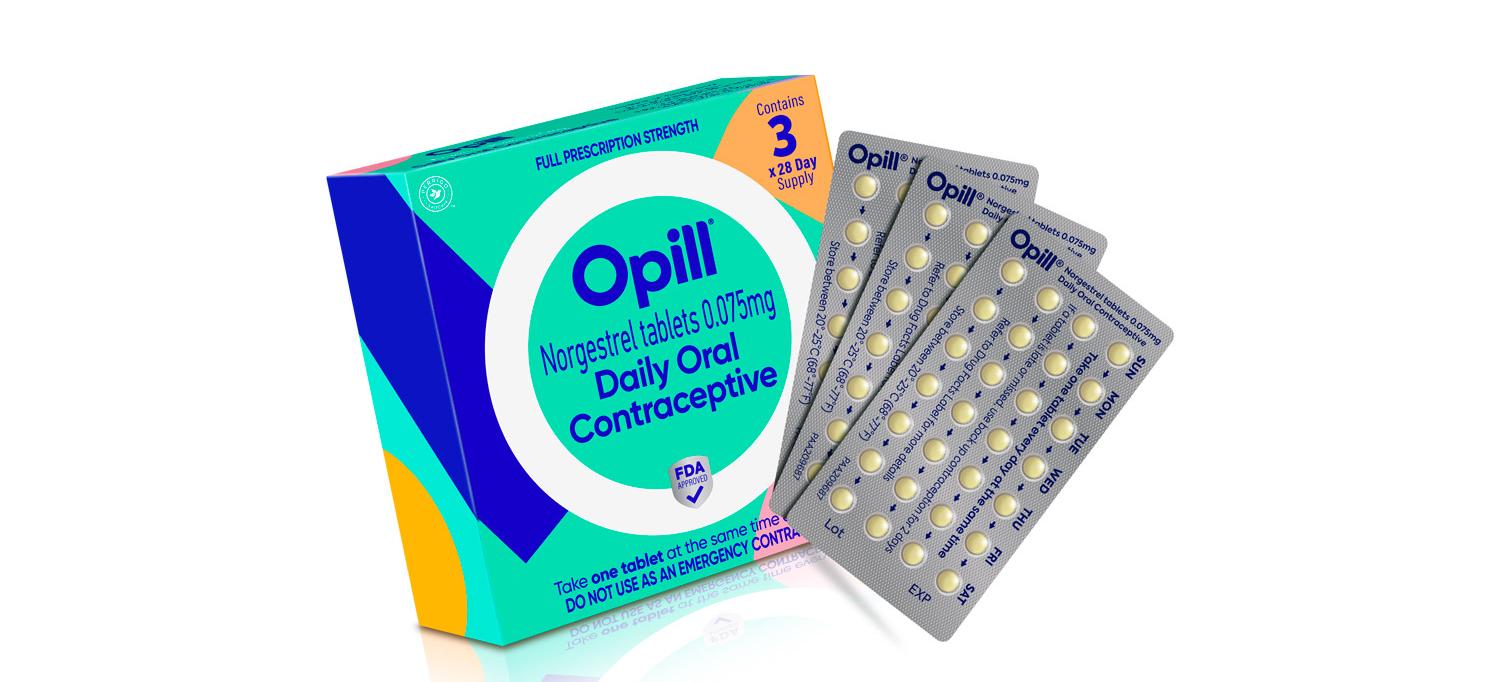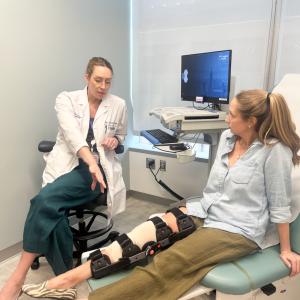
CREDIT: Perrigo
For the first time, people who use hormonal contraception can buy it right off the drugstore shelf, no prescription required. This advance is a “great step forward” for birth control accessibility, says Colleen Denny, MD, director of family planning at NYU Langone Hospital—Brooklyn.
The new contraceptive, called Opill, is available to anyone regardless of their insurance coverage or whether they’ve seen a doctor. Perrigo, Opill’s manufacturer, has set the price at $19.99 for a one-month supply, with discounts for three- and six-month orders.
In anticipation of the pill’s U.S. rollout, Dr. Denny shares five things to know about Opill.
1. You Don’t Need a Prescription for Opill
Opill is available without a prescription, meaning it can be found on store shelves—likely in the family planning section of major retailers and pharmacies—and bought at checkout, no questions asked.
Considering that research shows that one-third of hormonal contraceptive users have missed a dose because they couldn’t get their next supply in time, this is a big win for expanding reproductive healthcare access, says Dr. Denny. Customers can also order the pill online, in three- and six-month supplies, and have it shipped directly to their homes.
2. It’s a Progestin-Only Pill, Which Is Safe for Many
Some patients with certain medical problems are advised not to take estrogen–progestin combination pills, which contain a combination of hormones. However, Opill is a progestin-only pill, and it’s been proven to be extremely safe and effective with minimal side effects.
Many people who cannot take estrogen-progestin pills can safely use Opill. Progestin-only birth control pills like Opill are safe for those with high blood pressure, diabetes, and cardiovascular disease, among other conditions. Opill should not be taken by anyone with a history of breast cancer or certain rare types of liver disease, but this is a very small percentage of the population.
With progestin-only pills, “The main side effect that people notice is that they have more irregular spotting,” says Dr. Denny, but she added that this spotting is not dangerous, doesn’t happen to everyone, and that many patients feel that the benefits outweigh the inconvenience.
3. Opill Is 98 Percent Effective When Used Correctly
Opill is 98 percent effective when taken every day at the same time, according to the manufacturer. “We know birth control pills work best when you take them at the same time every day, and that is easier for some people and harder for others,” says Dr. Denny.
“I often tell my patients to find a time in their day that’s already routine. I’ve had some patients tell me they take the pill before brushing their teeth, and others say they set an alarm to help them remember.”
4. It Won’t Work as Emergency Contraception, STI Prevention, or Abortion Medication
When taken properly, Opill starts working within 48 hours of the first dose. This means it is not suitable as emergency contraception (which is taken after unprotected sex). Similarly, Opill will not work if a person is already pregnant and does not serve as protection against sexually transmitted infections (STIs). Barrier methods like condoms offer a degree of STI protection and can be used in conjunction with contraceptives like Opill.
5. Your Obstetrician–Gynecologist Is There to Support You
For those who choose over-the-counter birth control, Dr. Denny wants you to know that your obstetrician–gynecologist or reproductive healthcare provider is still there to provide support. She advises patients to see their doctor for cervical cancer screenings, STI screenings, advice on safe and enjoyable sex, and care for periods, menopause, and pregnancy.
She reminds patients that there are many birth control options out there. “It might be that your personal preference isn’t to take a pill every day, and your obstetrician–gynecologist can help you,” she says. “The range of modern birth control is really wide, so, depending on what you want, there’s lots of different things to try.”

